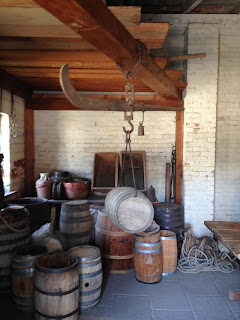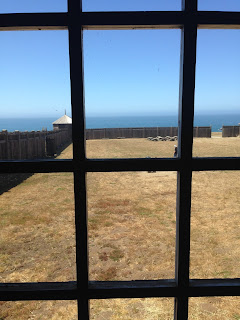Iaijutsu is the art of drawing the sword and cutting in one fluid motion. The style itself originated was originated in 1590 by Hayashizaki Jinsuke Minamoto no Shigenobu, whose father was slain by a swordsman. Young Hayazashizaki, less skillful that than swordsman that killed his father, meditated 100 days at a shrine and (it is said) received insight into the method that became Iaijutsu. He successfully avenged his father and went on to found the style.
I cannot now tell you how I found it - I was just searching on the Internet not soon after I had moved to New Home and was looking for something to learn. I had done European fencing in the past and while I had enjoyed it, it was not a complete sword style to me: there was no drawing, no sheathing, no practical application in what would have been real situations.
Iaijutsu, in the nine years I have practiced it, has taught me many things. Yes, it has taught me some level of using the sword as well as open hand techniques and naginata. But I would argue that it has actually taught me a great deal more.
The practice of Iai has changed my character. It has instilled in me discipline (through practice) and consistency (in practice and attending class week after week, year after year). It has taught me the practice of patience and the speed of reaction. It has taught me the importance of timing and distance - factors not important just in Iai but in life itself (everything, if you think about it, is related to timing (when and where) and distance (how far and how close).
It has also given the insight that ten year old me wanted into Japanese culture. It enabled me to return to Japan. And it has given me a new set of friends scattered all over the world but united by Iai.
It allowed me to have a basic level of understanding of the techniques of the lowest level - as I argue, I am now always the sensei of last resort, when my own sensei is unable to attend class.
It has also taught me how little I actually know - that just knowing the techniques of anything are not the same as understanding it and that only practicing the techniques in order of learning is not the same as applying them in real life - sword battles usually do not end at the first cut and must be continued until victory, just as any other situation in life. It gives me something to look forward to on the worst of days and inevitably I feel better mentally after I have been to class.
After nine years I would tell you that I am a mediocre swordsman at best, scarcely able to clear the sheath and get a cut or block. But I am always comforted by the head of my order, who always reminds us that Iai mastery is a lifetime art, a journey whose destination we never quite reach.
And every day, I get to take one more step towards mastery.


























































